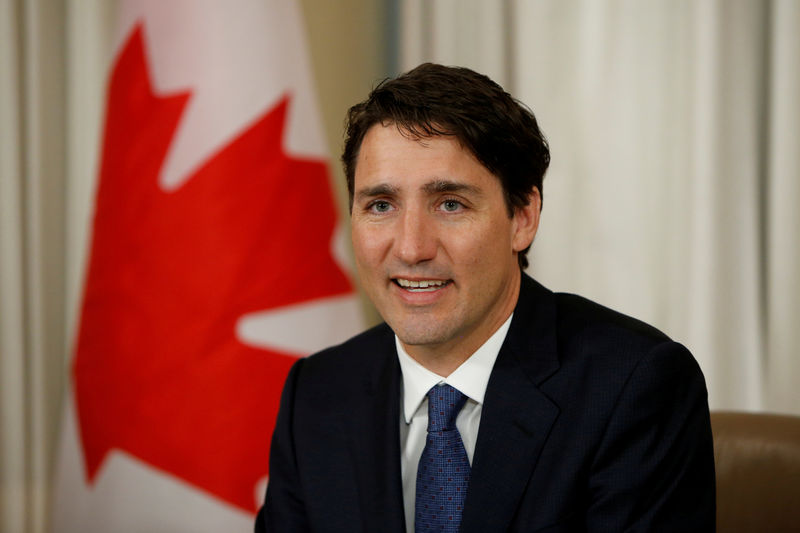By Ketki Saxena
Investing.com -- Prime Minister Justin Trudeau and his German counterpart, Chancellor Olaf Scholz, have pivoted away from the idea of shipping Canadian natural gas to Europe, instead prioritizing the development of cleaner energy sources, like green hydrogen in Canada for export to Europe.
Canada and Germany yesterday signed a five-page declaration of intent to create a hydrogen alliance between the two countries, in which Canada will ramp up production of hydrogen to help meet Germany’s energy needs as it seeks to reduce its reliance on Russian energy.
Germany meanwhile will be responsible for the shipping corridor and logistics to transport the fuel across the Atlantic.
Scholz and Trudeau asserted their belief that a new hydrogen trade corridor can be up and running prior to 2030, and the first deliveries possible in 2025 - just three years.
However, Canada currently produces almost no hydrogen that would fit the goals of the agreement. Currently, Canada produces almost exclusively “gray” hydrogen that produces twice the emissions that natural gas does; whereas Germany prefers expensive and cleaner “green” hydrogen” - which is significantly more expensive to produce than natural gas.
A gigajoule of natural gas costs about $3.79 to produce, while a comparable measure of “green” hydrogen - if it's produced using electricity from renewable sources - costs over $60.
Canada also lacks the necessary infrastructure such as hydrogen pipelines and liquefaction plants to significantly ramp up its hydrogen capacity in the near future. The hydrogen projects required to ramp up capacity would also need to gain regulatory approval, be reviewed, built, and in production within three years.
Canada seems certainly to have committed itself to an ambitious target, with Canadian Natural Resources (TSX:CNQ) minister Jonathan Wilkinson noting that the alliance “is absolutely ambitious”, but maintains the need for remaining “ambitious to actually force action”.
